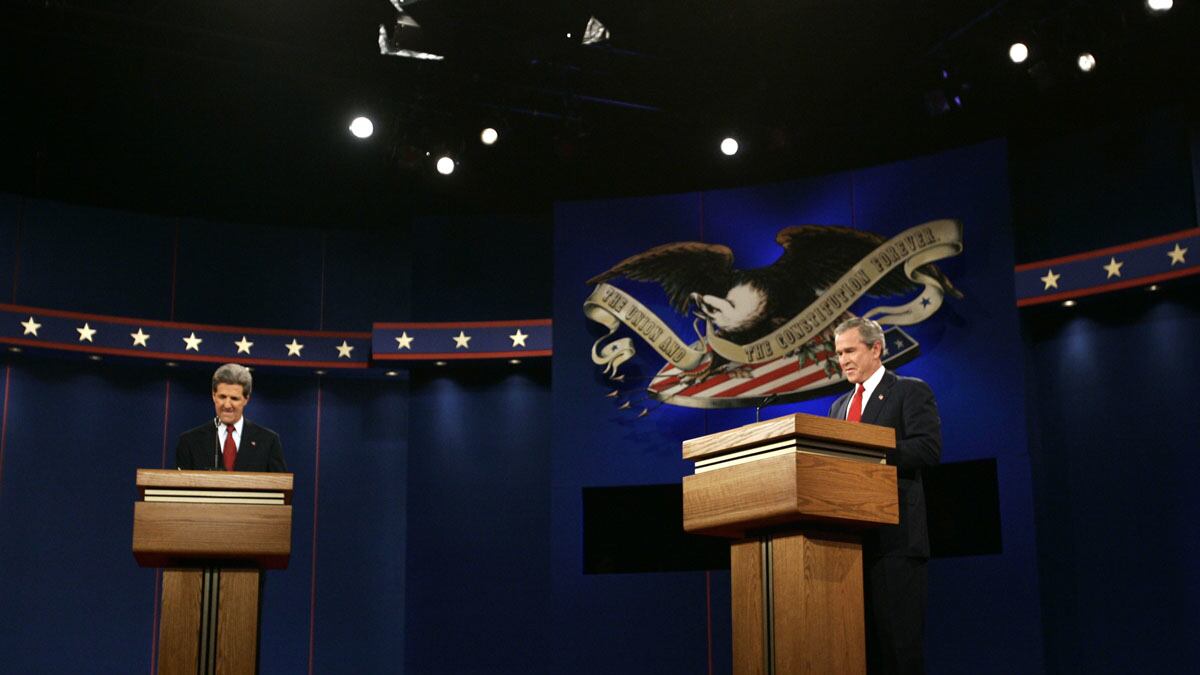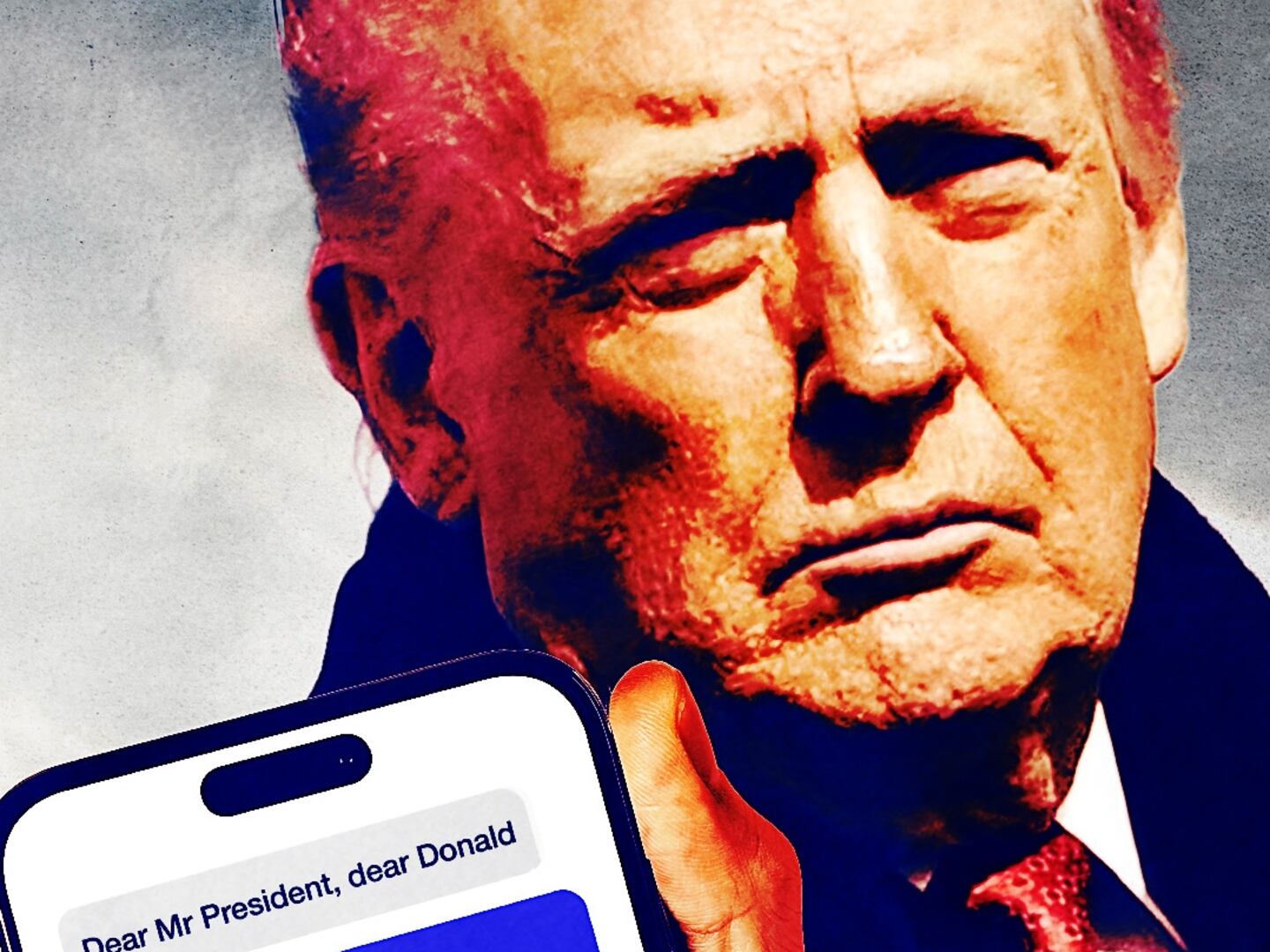From Al Gore’s loud sighing to Jimmy Carter saying he consulted his 12-year-old daughter on nuclear proliferation, presidential debates are full of memorable moments. But despite the fanfare that surrounds each election cycle’s televised events, historical data shows the debates are rarely game changers.

“There are a handful of cases in which a debate had a notable effect on the polls,” political scientist John Sides says. “But most debates don’t produce that kind of shift.”
A 2008 Gallup study found that between 1960 and 2004, there were only two years where debates made a difference in actual votes. Instead, the most common outcome of the presidential debates is a slight popularity bump. But that bump doesn’t necessarily translate into votes.
“They sometimes have a short-term effect, a bounce in response to the debates, but at the end of the day there often is not much of an effect,” says Robert Erikson, author of The Timeline of Presidential Elections.
Data from the Gallup study also saw no direct correlation between the winner of each debate and the winner of the presidency. The 2004 Kerry vs. Bush debate was cited as an example. Kerry was considered the victor of all three showdowns, but still lost the election.
There are numerous factors responsible for the disparity between who “wins” the debates and who wins the election. Political scientists say one of the biggest reasons is that those who are watching the debates already have their minds made up.
“By [debate] time voters have pretty much picked their candidates,” says Erikson. “Some are undecided, but they are probably not paying attention…People who are political and have a party affiliation are hard to dislodge by the debates. And those rooting for their favorite candidate, even if he is doing poorly, aren’t necessarily going to change their mind.”
Even if a large number of open-minded, undecided voters watch the debates, history shows that the events are typically lackluster and therefore unlikely to influence a person’s interpretation of a candidate.
“Usually the candidates fight to a draw. They are well prepared and the format of the debates gives them equal time,” Sides says. “So it’s hard in that context to have a stunning victory or a terrible defeat.”
But Allan Louden, political communications professor at Wake Forest University, says the debate’s tendency to reinforce impressions of a candidate is a benefit in disguise.
“Debates are extremely important even when they don’t move polls because they solidify the prevailing narratives,” he says.
Using the 1988 debates between Michael Dukakis and George H. W. Bush as an example, Louden says that many were initially wary of Dukakis as being a “technocrat who shows no emotion.” And when Dukakis responded to the question of whether he would ask for the death penalty if a man raped and killed his wife with an unemotional “No,” he reinforced that image.
“The debates only work with the rest of the messaging with what people believe. They amplify and they solidify, but they don’t necessarily convert a lot of people,” Louden says.
The only two debates that were found to have a notable effect on the election was the first televised debate between John F. Kennedy and Richard Nixon in 1960 and a debate between Al Gore and George W. Bush in 2000.
The Gallup report calls these particular debates the “two exceptions” to the rule “whereby the ultimate winner moved from a deficit position to front-runner.”
Kennedy and Nixon were nearly tied in the polls going into their first debate, but Kennedy wowed the audience with his charisma while Nixon sweated under the TV lights. At the end Kennedy had a 4-point lead. In the 2000 debates Gore came in with an 8-point lead, but a shift toward Bush by the third debate, and perhaps the media commenting on Gore’s perpetual sighing during the first debate, put Bush at the end leading by 4.
“I think you have to have a relatively clear difference in performance. One candidate has to appear that much better or worse than the other. And how that happens, there is no one recipe,” Sides says.
But political analysts say a similar show is unlikely to happen for the Obama vs. Romney debates that start Oct. 3.
“The home camps have been notified this election that they are supposed to show up. I don’t see a lot of movement,” Louden says.
Sides has a similar prediction, saying the presidential candidates are typically so prepped for the debates that they rarely stray from their talking points. So, what happens during the debates is likely to just be more of the same and not enough to pull a voter in either direction.
“History doesn’t suggest that there’s going to be a big shift. It doesn’t rule it out, but it’s unlikely,” he says.






